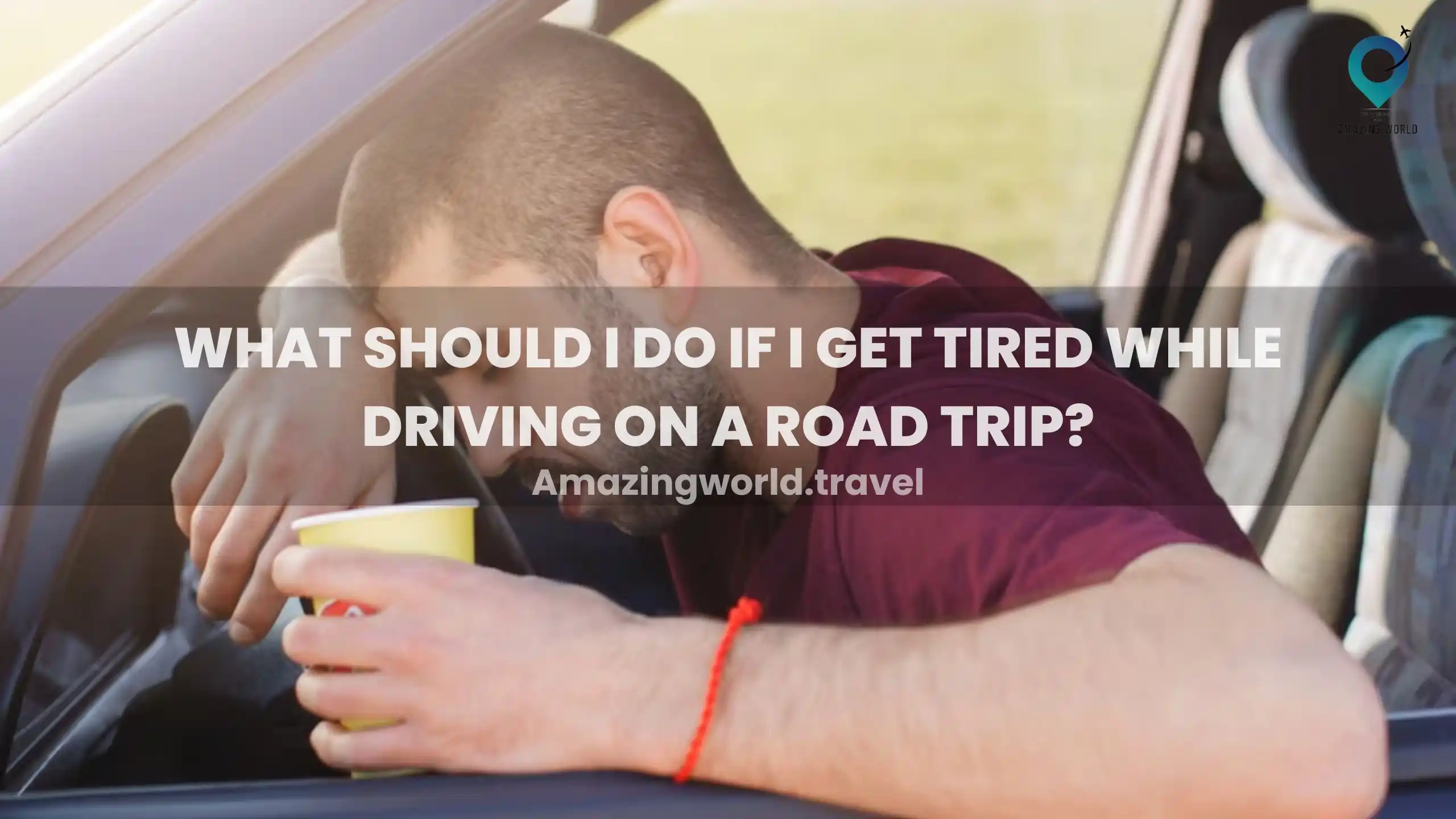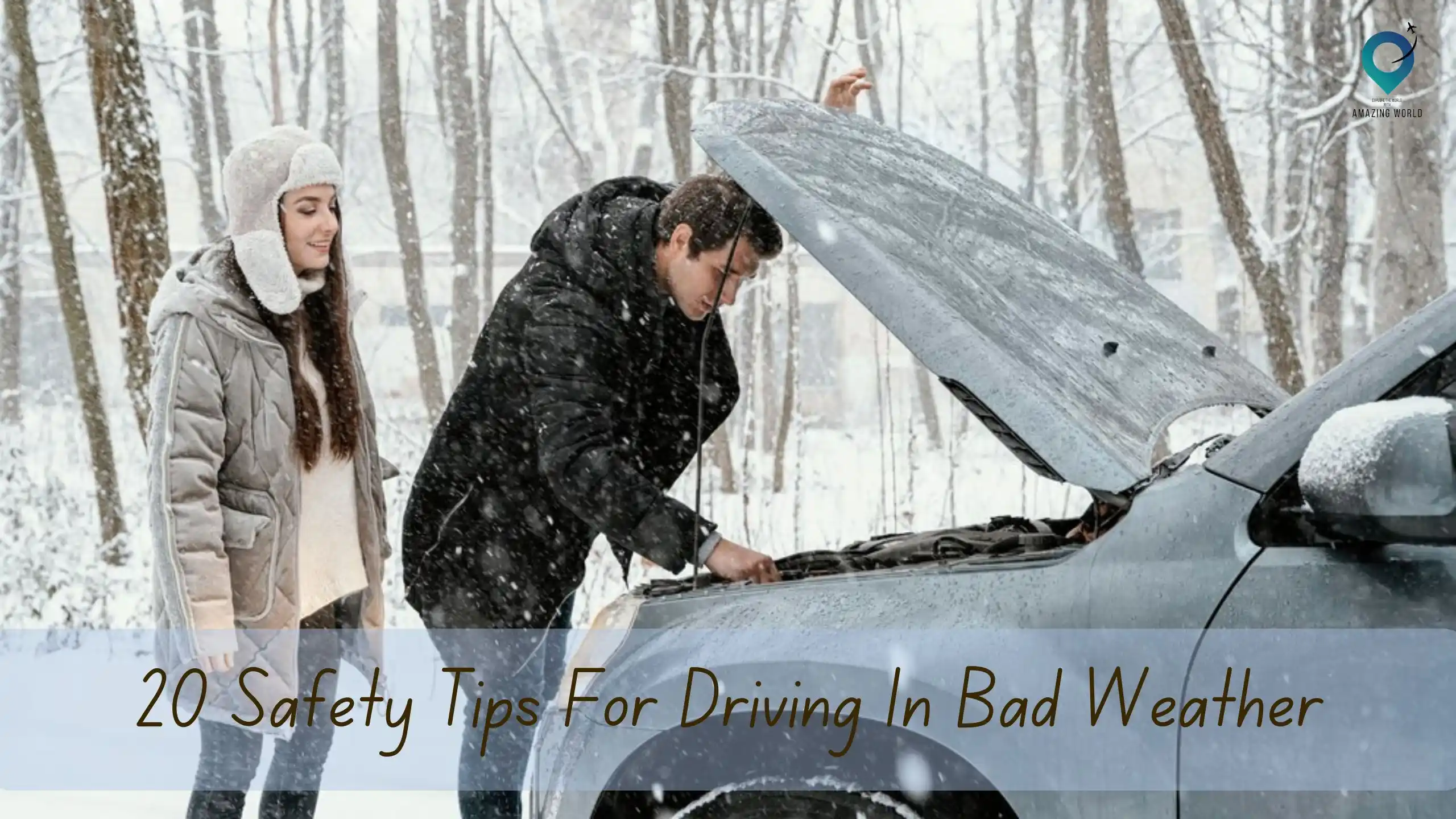What Should I Do If I Get Tired While Driving on a Road Trip?
Table of Contents
Toggle
Embarking on a road trip is an exciting adventure, offering the opportunity to explore new places, create lasting memories, and unwind from the daily grind. However, long hours behind the wheel can take a toll on your energy levels, increasing the risk of fatigue and drowsiness. Knowing what to do if you get tired while driving on a road trip is crucial to ensure your safety and the safety of others on the road.
In this article, we’ll explore effective strategies and expert advice to help you combat fatigue and maintain alertness during your journey.
Take Regular Breaks
Long stretches of driving can be monotonous and contribute to fatigue. To combat this, make it a habit to take regular breaks every two hours or so. Use these breaks to stretch your legs, grab a snack, or simply rest. Even a short break can provide a much-needed mental and physical boost, allowing you to continue your journey with renewed energy.
Share the Driving Responsibilities
If you’re traveling with a companion, consider sharing the driving responsibilities. Alternating drivers allow each person to rest while the other takes the wheel, reducing the risk of fatigue for both individuals. This strategy promotes safety and ensures a more enjoyable trip, as everyone gets a chance to relax and appreciate the scenery.
Stay Hydrated and Avoid Heavy Meals
Proper hydration and nutrition play a vital role in combating fatigue. Stay hydrated by drinking water regularly, as dehydration can intensify feelings of tiredness. Additionally, avoid consuming heavy meals before or during your drive, as they can make you feel lethargic. Opt for light, healthy snacks that provide sustained energy, such as fruits, nuts, and granola bars.
Get Sufficient Sleep Before Your Trip
Before embarking on your road trip, ensure you have had enough sleep the previous night. Aim for a minimum of 7-8 hours of quality sleep to feel refreshed and alert. Proper rest before your journey will help you start off on the right foot, minimizing the chances of feeling tired while driving.
Listen to Engaging Music or Audiobooks
Listening to lively music or engaging audiobooks can help you stay mentally stimulated and combat fatigue during long drives. Create a playlist of your favorite upbeat songs or download an interesting audiobook that captures your attention. The rhythm and engaging content will keep you alert and entertained, making the journey more enjoyable.
Use Air Conditioning or Open the Windows
If you start feeling drowsy, adjusting the temperature inside the car can make a difference. Turning on the air conditioning or cracking open the windows to let in fresh air can help combat drowsiness. The cool breeze or gentle airflow can keep you more alert and invigorated, especially during warm or stuffy weather conditions.
Chew Gum or Munch on Snacks
Chewing gum or munching on snacks that require chewing can help combat fatigue. The chewing action stimulates the muscles in your jaw and face, promoting blood flow and increased alertness. Keep some gum or bite-sized snacks handy to give yourself a natural boost when you start feeling tired.
Engage in Conversations or Play Interactive Games
Interacting with fellow passengers can help keep your mind engaged and ward off drowsiness. Engage in lively conversations, play interactive road trip games, or solve riddles together. The mental stimulation from these activities can help combat fatigue and make the journey more enjoyable.
Avoid Monotonous Roads and Scenery
Driving on monotonous roads or staring at unchanging scenery for long periods can contribute to fatigue. Where possible, opt for scenic routes or alternate between different types of roads. Changing the view and experiencing new surroundings can help you stay alert and engaged, reducing the likelihood of tiredness.
Take Power Naps if Needed
If you feel extremely tired and none of the above strategies alleviate your fatigue, it may be time for a power nap. Find a safe place to park, such as a rest area or parking lot, and set an alarm for 15 to 20 minutes. This short nap can provide a quick energy boost and help you continue your journey more alertly.
Conclusion
Knowing what to do if you get tired while driving on a road trip is essential for a safe and enjoyable journey. By following the strategies mentioned in this article, such as taking regular breaks, sharing driving responsibilities, staying hydrated, and engaging in stimulating activities, you can combat fatigue and maintain alertness on the road.
Remember, the safety of yourself, your passengers, and other road users should always be a top priority. Stay vigilant, prioritize rest, and enjoy your road trip adventures!
How much did you like Our detailed How to Stay Awake While Driving Long Distances? Review Also, please share these Blogs with your friends on social media.
Related Article –
- Road Trips Ideas | 12 Tips to Prepare Your Car for a Long Road Trip?
- 150 Best Places to Visit in the United States In 2023
- Road Trip With Kids
How to Stay Awake While Driving FAQs
How can I recognize the signs of fatigue while driving?
Recognizing the signs of fatigue is crucial to take timely action. Common signs include frequent yawning, heavy eyelids, difficulty maintaining focus, drifting out of your lane, and sudden jerks or movements due to microsleep. If you experience any of these symptoms, it’s essential to address your fatigue promptly.
Can caffeine help combat fatigue while driving?
Caffeine, found in coffee, tea, or energy drinks, can provide a temporary energy boost and increase alertness. However, its effects are short-lived, and it is not a substitute for proper rest. Use caffeine strategically, but remember to prioritize regular breaks, sufficient sleep, and healthy habits for long-term fatigue prevention.
Should I rely on energy drinks to stay awake during road trips?
While energy drinks contain caffeine and other stimulants, relying on them to stay awake is not recommended. Energy drinks can lead to a spike in energy followed by a crash, potentially exacerbating fatigue. Moreover, excessive consumption of energy drinks can have adverse effects on your health. It is best to focus on healthy strategies to combat fatigue instead.
Can opening the windows or turning up the radio volume help combat fatigue?
Opening the windows or turning up the radio volume may provide temporary relief by stimulating your senses. However, these methods are not a substitute for addressing the root cause of fatigue. Use them in conjunction with other strategies mentioned in this article to stay alert and combat tiredness effectively.
How long should I nap if I feel tired while driving?
If you feel tired while driving, a power nap of 15 to 20 minutes can help alleviate fatigue. Napping for longer periods may leave you feeling groggy upon waking. Remember to set an alarm and find a safe place to park before taking a nap.
Is it safe to rely on energy drinks or other stimulants for long drives?
While energy drinks or other stimulants may provide a temporary energy boost, relying on them for long drives is not advisable. They can mask fatigue and may lead to a false sense of alertness, increasing the risk of accidents. It is crucial to prioritize proper rest, regular breaks, and healthy habits to maintain sustained alertness during long drives.

Meet David Hoper, a passionate travel Blog writer with 7+ years of experience in travel content. Through his exemplary storytelling and engaging narratives, he shares his experiences and brings destinations to life. With a keen eye for detail and a love for exploration, he has cultivated a diverse portfolio of travel blogs that inspire and inform readers worldwide.







